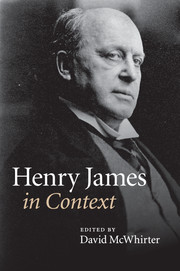Book contents
- Frontmatter
- Contents
- List of Illustrations
- Notes on Contributors
- Preface
- Abbreviations
- Chronology
- Part One Life and career, times and places
- Part Two Historical and cultural contexts
- Chapter 9 Aestheticism and Decadence
- Chapter 10 Authorship
- Chapter 11 Children
- Chapter 12 Consumer culture
- Chapter 13 Cosmopolitanism
- Chapter 14 Courtship, marriage, family
- Chapter 15 Ethics
- Chapter 16 Language
- Chapter 17 Law
- Chapter 18 Manners
- Chapter 19 Media and communication technologies
- Chapter 20 Modernism
- Chapter 21 Money and class
- Chapter 22 Museums and exhibitions
- Chapter 23 Nationalism and imperialism
- Chapter 24 Print culture
- Chapter 25 Psychology
- Chapter 26 Race
- Chapter 27 Realism and naturalism
- Chapter 28 Sexualities and sexology
- Chapter 29 Social sciences and the disciplines
- Chapter 30 Things
- Chapter 31 Time
- Chapter 32 Travel and tourism
- Chapter 33 Urbanity
- Chapter 34 Visual culture
- Chapter 35 Women and men
- Chapter 36 Work
- Part Three Reception
- Further reading
- Index
- References
Chapter 14 - Courtship, marriage, family
Published online by Cambridge University Press: 05 August 2014
- Frontmatter
- Contents
- List of Illustrations
- Notes on Contributors
- Preface
- Abbreviations
- Chronology
- Part One Life and career, times and places
- Part Two Historical and cultural contexts
- Chapter 9 Aestheticism and Decadence
- Chapter 10 Authorship
- Chapter 11 Children
- Chapter 12 Consumer culture
- Chapter 13 Cosmopolitanism
- Chapter 14 Courtship, marriage, family
- Chapter 15 Ethics
- Chapter 16 Language
- Chapter 17 Law
- Chapter 18 Manners
- Chapter 19 Media and communication technologies
- Chapter 20 Modernism
- Chapter 21 Money and class
- Chapter 22 Museums and exhibitions
- Chapter 23 Nationalism and imperialism
- Chapter 24 Print culture
- Chapter 25 Psychology
- Chapter 26 Race
- Chapter 27 Realism and naturalism
- Chapter 28 Sexualities and sexology
- Chapter 29 Social sciences and the disciplines
- Chapter 30 Things
- Chapter 31 Time
- Chapter 32 Travel and tourism
- Chapter 33 Urbanity
- Chapter 34 Visual culture
- Chapter 35 Women and men
- Chapter 36 Work
- Part Three Reception
- Further reading
- Index
- References
Summary
If, like Henry James, you lived in Great Britain or the United States at the end of the mineteenth century, the futures of courtship, marriage and the family might have seemed to hinge on the Woman Question (and its companion, the Marriage Question). This chapter starts with James’s most direct exploration of both. In The Bostonians (1886), Henry James examines the challenges the feminist and the New Woman posed to courtship, marriage and the family through the eyes of Basil Ransom, a veteran from the levelled South, where his mother and sisters live hand to mouth on a ‘farinaceous diet’ (N-2, 975). Ransom has left them to seek his fortune in New York and so that he can send some greenbacks home. But after meeting a charismatic speaker for the Woman Movement, he makes courting her his new cause. Marrying Verena Tarrant will not put meat and drink back on his mother’s table. Yet marrying Verena could raise a degraded civilization, and his family with it, because marrying Verena could subvert what he takes to be the movement’s subversion of marriage. As marriage goes, so goes civilization, from its apogee at the Victorian family dinner table (‘the father at the head, the mother at the foot’) to his kinswomen’s subsistence on food just ‘sufficient’ to ‘support existence’ (N-2, 973). In the wake of popular postbellum fiction, in which the union of a Northern man and a Southern woman regenerates the nation, The Bostonians features a Southern man who marries a Northern woman to stem the degeneration of marriage.
- Type
- Chapter
- Information
- Henry James in Context , pp. 150 - 160Publisher: Cambridge University PressPrint publication year: 2010



